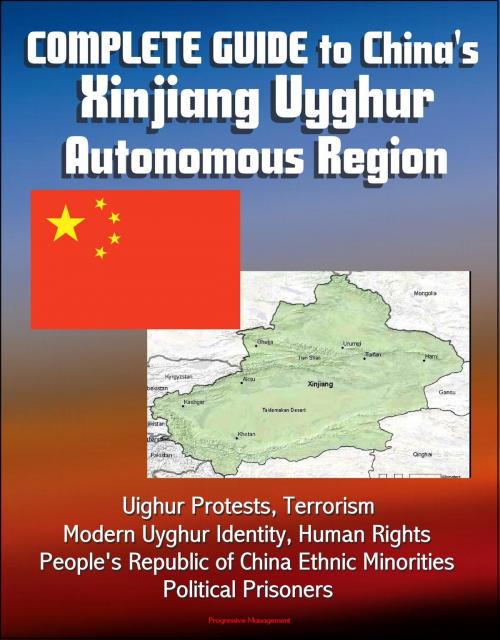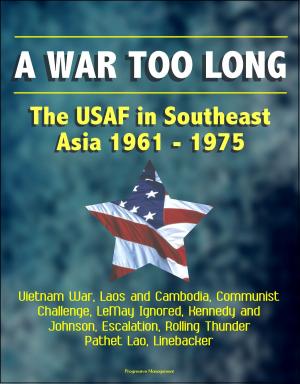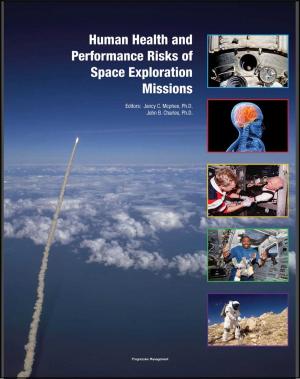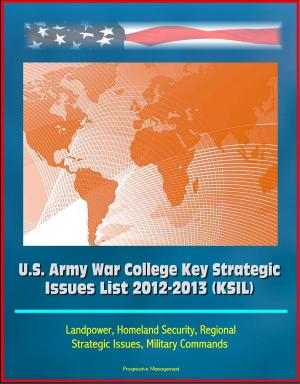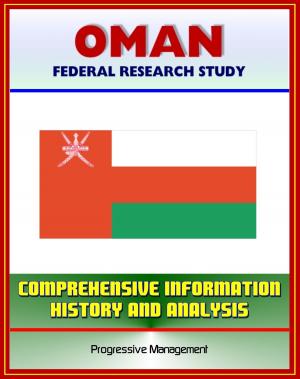Complete Guide to China's Xinjiang Uyghur Autonomous Region, Uighur Protests, Terrorism, Modern Uyghur Identity, Human Rights, People's Republic of China Ethnic Minorities, Political Prisoners
Nonfiction, History, Asian, China, Social & Cultural Studies, Political Science| Author: | Progressive Management | ISBN: | 9781310122231 |
| Publisher: | Progressive Management | Publication: | November 5, 2013 |
| Imprint: | Smashwords Edition | Language: | English |
| Author: | Progressive Management |
| ISBN: | 9781310122231 |
| Publisher: | Progressive Management |
| Publication: | November 5, 2013 |
| Imprint: | Smashwords Edition |
| Language: | English |
This unique ebook provides an encyclopedic overview of all aspects of the Uyghur population and the Chinese Xinjiang Uyghur Autonomous Region, protests and alleged terrorism by Muslim Uyghurs, Chinese government policies toward the Uyghurs, oppression, history, Chinese human rights, U.S. policy issues, and much more. This massive compendium includes government reports, federal material, military information, and Congressional hearing transcripts.
Contents:
Uyghurs in Xinjiang: United or Divided Against the PRC? * State Department Material * Human Rights in Xinjiang: Recent Developments * Xinjiang * The Islamic Republic of Eastern Turkestan and the Formation of Modern Uyghur Identity in Xinjiang * Uyghur Muslim Ethnic Separatism in Xinjiang, China * Xinjiang and China's National Security: Counter-Terrorism or Counter-Separatism? * Nationalism and Islamic Identity in Xinjiang * The Fracturing of China? Ethnic Separatism and Political Violence in the Xinjiang Uyghur Autonomous Region * Freedom Fighters or Terrorists? Exploring the Case of the Uighur People * Uyghurs Without Borders? The Economic and Social Status of Uyghurs in Kazakhstan and Its Impact on Interethnic Conflict and Transnational Threats * Protracted Counterinsurgency Chinese COIN Strategy in Xinjiang * Congressional-Executive Commission on China (CECC) Xinjiang and Uyghur Coverage * Congressional-Executive Commission on China - Annual Report 2012 * Human Rights in China and U.S. Policy: Issues for the 113th Congress * Investigating the Chinese Threat, Part II: Human Rights Abuses, Torture and Disappearances * The Internet in China: A Tool for Freedom or Suppression? * Political Prisoners in China: Trends and Implications for U.S. Policy
In the past decade, Chinese authorities have carried out especially harsh religious and ethnic policies against Uighurs, a predominantly Muslim Turkic ethnic group living primarily in China's far northwestern Xinjiang Uighur Autonomous Region (XUAR). Once the predominant ethnic group in the region, Xinjiang's 8.5 million Uighurs now constitute an estimated 40% of the population as many Han have migrated there, particularly to the regional capital, Urumqi. The PRC government asserts that many Muslims in China, including Uighurs, receive preferential treatment due to special policies toward minority groups, that PRC economic policies have benefitted Uighurs, and that firm religious and ethnic policies are necessary to prevent terrorism. In 2010, China's top leadership held the first "work forum" focused on the XUAR. The forum produced an ambitious economic development plan for the region, but did not address longstanding Uighur political and religious grievances.
The PRC government has often conflated the religious and cultural practices of Uighurs in Xinjiang with subversive activities or the "three evils of religious extremism, splittism, and terrorism." It claims that the East Turkestan Islamic Movement (ETIM), a Uighur organization that advocates the creation of an independent Uighur Islamic state, was responsible for terrorist attacks in China and has ties to Al Qaeda. In 2011, Xinjiang courts tried 414 cases of endangering state security, up 10% over the previous year. In June 2012, the official press announced that police had arrested six Uighurs in connection with an attempted hijacking aboard a plane travelling from Hotan, Xinjiang to Urumqi. Representatives of the World Uyghur Congress countered that the onboard disturbance was not a hijacking attempt but rather a "brawl over a seat dispute."
The Chinese government uses anti-terrorism campaigns as a pretext for enforcing harsh security policies in the XUAR. The government used security preparations for the 2008 Beijing Summer Olympic Games, reports of terrorist activity, and protests in Tibetan areas of China and within the XUAR as platforms for advancing repressive security measures in the region.
This unique ebook provides an encyclopedic overview of all aspects of the Uyghur population and the Chinese Xinjiang Uyghur Autonomous Region, protests and alleged terrorism by Muslim Uyghurs, Chinese government policies toward the Uyghurs, oppression, history, Chinese human rights, U.S. policy issues, and much more. This massive compendium includes government reports, federal material, military information, and Congressional hearing transcripts.
Contents:
Uyghurs in Xinjiang: United or Divided Against the PRC? * State Department Material * Human Rights in Xinjiang: Recent Developments * Xinjiang * The Islamic Republic of Eastern Turkestan and the Formation of Modern Uyghur Identity in Xinjiang * Uyghur Muslim Ethnic Separatism in Xinjiang, China * Xinjiang and China's National Security: Counter-Terrorism or Counter-Separatism? * Nationalism and Islamic Identity in Xinjiang * The Fracturing of China? Ethnic Separatism and Political Violence in the Xinjiang Uyghur Autonomous Region * Freedom Fighters or Terrorists? Exploring the Case of the Uighur People * Uyghurs Without Borders? The Economic and Social Status of Uyghurs in Kazakhstan and Its Impact on Interethnic Conflict and Transnational Threats * Protracted Counterinsurgency Chinese COIN Strategy in Xinjiang * Congressional-Executive Commission on China (CECC) Xinjiang and Uyghur Coverage * Congressional-Executive Commission on China - Annual Report 2012 * Human Rights in China and U.S. Policy: Issues for the 113th Congress * Investigating the Chinese Threat, Part II: Human Rights Abuses, Torture and Disappearances * The Internet in China: A Tool for Freedom or Suppression? * Political Prisoners in China: Trends and Implications for U.S. Policy
In the past decade, Chinese authorities have carried out especially harsh religious and ethnic policies against Uighurs, a predominantly Muslim Turkic ethnic group living primarily in China's far northwestern Xinjiang Uighur Autonomous Region (XUAR). Once the predominant ethnic group in the region, Xinjiang's 8.5 million Uighurs now constitute an estimated 40% of the population as many Han have migrated there, particularly to the regional capital, Urumqi. The PRC government asserts that many Muslims in China, including Uighurs, receive preferential treatment due to special policies toward minority groups, that PRC economic policies have benefitted Uighurs, and that firm religious and ethnic policies are necessary to prevent terrorism. In 2010, China's top leadership held the first "work forum" focused on the XUAR. The forum produced an ambitious economic development plan for the region, but did not address longstanding Uighur political and religious grievances.
The PRC government has often conflated the religious and cultural practices of Uighurs in Xinjiang with subversive activities or the "three evils of religious extremism, splittism, and terrorism." It claims that the East Turkestan Islamic Movement (ETIM), a Uighur organization that advocates the creation of an independent Uighur Islamic state, was responsible for terrorist attacks in China and has ties to Al Qaeda. In 2011, Xinjiang courts tried 414 cases of endangering state security, up 10% over the previous year. In June 2012, the official press announced that police had arrested six Uighurs in connection with an attempted hijacking aboard a plane travelling from Hotan, Xinjiang to Urumqi. Representatives of the World Uyghur Congress countered that the onboard disturbance was not a hijacking attempt but rather a "brawl over a seat dispute."
The Chinese government uses anti-terrorism campaigns as a pretext for enforcing harsh security policies in the XUAR. The government used security preparations for the 2008 Beijing Summer Olympic Games, reports of terrorist activity, and protests in Tibetan areas of China and within the XUAR as platforms for advancing repressive security measures in the region.
